Account-based marketing helps zero in on high-value accounts for personalized engagement to drive quality data and create a pipeline that converts.
But scaling this approach? That's where picking the right account-based marketing tools comes in.
And if you're feeling overwhelmed by the sea of ABM solutions out there, don't worry.
We've done the heavy lifting by vetting top account-based marketing software and gathering expert insights from users.
The result? A no-nonsense guide to finding the perfect Account-based marketing tool for your needs.
Curious to see what made the cut? Let's dive in.
12 of the Best Account-Based Marketing Tools: At a Glance
1.Storylane
Storylane is a demo automation platform that helps GTM teams engage with high-value accounts via interactive demo experiences.
One of its standout features, DemoHub, lets you build a centralized repository of product demos to address multiple buyer personas and use cases to guide them through their buyer journey, providing a “try before you buy” approach to the product.
Best for: Creating interactive, personalized product demo experiences
Key features:
- Interactive demo builder: Create engaging, guided tours of your product without writing a single line of code
- Buyer reveal: Gain enriched insights into who's interacting with your demo and run focused ABM campaigns for companies visiting these demos
- DemoHub: Curate and manage microsites or landing pages to share personalized demos to target accounts
- Personalized sharing: Quickly personalize demo content at scale before sharing it with each prospect via emails, landing pages, Slack, etc.
- Detailed analytics: Comprehensive insights into user engagement, including DemoHub analytics, time spent on each step of the demo and drop-off points
- Real-time alerts: Get real-time alerts on Slack when target accounts show increased interest in relevant topics or demos
- Connect to tech stack: Connects with 30+ tools, including Hubspot, Salesforce, Intercom, Slack, Teams, Marketo, etc.
Pros:
- Increases engagement with target accounts through interactive, tailored content
- Provides valuable insights into prospect interests and pain points
- Easily scalable for companies of all sizes
Cons:
No unlimited user seats as of now
Pricing:
Generous free plan with paid plans starting at:
- $500/year for screenshot capture
- $6000/year for HTML capture
2. HubSpot

HubSpot, a CRM tool, can be a great starting point for Account-Based Selling. It allows sales and marketing teams to align their efforts for targeted marketing campaigns and provides a centralized platform for managing customer relationships, creating personalized content, and tracking account progress.
Best for: Account-based marketing solution with CRM focus
Key features:
- Target account management: Track your target accounts with HubSpot's Target Account View and find new accounts using the Website Visit Feature to prioritize key opportunities
- Personalized content creation: Use smart content for curating content hubs or personalized campaigns for specific accounts
- Cross-team collaboration: Align sales and marketing with HubSpot's collaborative tools for unified account targeting
- Account-based reporting: Track and measure the success of your ABM campaigns
- Ample Integrations: Connect with a wide range of third-party tools and services
Pros:
- Create ICP filters to automatically tier prospects
- Covers multiple aspects of customer engagement
- User-friendly interface suitable for teams of all skill levels
Cons:
- Not a full-scale Account-based marketing platform
- Big disparity between subscription-level functionalities
Pricing:
Free plan available. Paid plans start at $45/month and scale up based on features and contacts.
3. Demandbase

Demandbase uses AI to help B2B companies identify, engage, and close high-value accounts. It provides account identification, engagement, and analytics, enabling precise targeting and personalized marketing.
Best for: AI-powered ABM and revenue intelligence
Key features:
- AI-driven account selection: Identify ideal target accounts using machine learning
- Intent data: Understand buyer behavior and engage at the right time
- Personalized advertising: Deliver targeted ads and customized content experiences to engage accounts and key decision-makers
- Account-based analytics: Analyze account engagement, define account journeys, and track your target accounts' progress across systems and journey stages
- Sales intelligence: technographic, contact data, engagement insights, and buyer intelligence — accessible within email and CRM, saving hours for your sales teams
Pros:
- Powerful AI capabilities for accurate account targeting and insights
- Comprehensive suite of tools covering the entire ABM process
- Strong integration with existing martech stacks
Cons:
- Can be complex to set up
- Users report steep pricing
- No option to bulk edit ABM campaigns
- UI is glitchy at times
Pricing:
Custom pricing based on company size and needs.
4. RollWorks

RollWorks is an ABM platform that combines account data, AI-driven insights, and multi-channel activation to help B2B companies identify and engage high-quality accounts.
Best for: Marketing and sales teams with HubSpot CRM
Key features:
- Account identification: Use AI to discover and prioritize target companies based on fit, intent, and engagement.
- Account data platform: Leverage a robust B2B database with firmographic, technographic, and contact data.
- Intent data: Identify website visitors showing interest in your solutions or related topics
- Advertising automation: Run targeted display, social, and video ad campaigns to key accounts and decision-makers
- Fit scoring: Combine buying signals with Account Fit Scoring to focus on the highest value accounts that fit your ICP
- Website personalization: Deliver tailored website experiences to target audience.
- Measurement and reporting: Track campaign performance and ROI with multi-touch attribution
Pros:
- ABM solution of choice for HubSpot users
- AI-powered account scoring and prioritization
- Strong focus on sales and marketing alignment
- One platform covering identification, engagement, and measurement
Cons:
- Learning curve can be steep for users new to ABM
- Scope to improve UI and reporting results
- Occasional bugs in the platform
- Lacks self-serve option for ads
- Some advanced features may require higher-tier plans
Pricing:
Offers tiered pricing plans with paid plans $11,700/year
5.Terminus

Known for its strong advertising capabilities, Terminus helps businesses engage with target accounts through multi-channel marketing strategies
Best for: Multi-channel ABM execution
Key features:
- Account intelligence: Identify and prioritize target accounts
- Multi-channel engagement: Coordinate efforts across multiple channels such as display advertising, email, web personalization, etc.
- Segmentation: Allows for precise audience segmentation to tailor messages and campaigns for different market segments
- Personalized ads: Include personalized ads in outbound email campaigns to improve engagement
- Marketing use case: Focused on personalized website experience, A/B testing, targeted ads and automated chatbots
- Sales insights: Provide sales teams with real-time account engagement data.
- Chat: Engage target accounts through personalized chat experiences
Pros:
- Comprehensive suite of tools for end-to-end ABM strategy execution
- Strong focus on multi-channel coordination
- Robust analytics and reporting capabilities
Cons:
- Can have a steep learning curve due to the breadth of features
- Doesn't have its own intent data
- Reports are difficult to customize
- Narrowing ad targeting to select titles requires pulling a support ticket
- Their sales workflow isn't as strong as other tools on the list
Pricing:
Custom pricing based on needs
6. NRich

NRich is a leading account-based marketing company in Europe, known for its GDPR-compliant data. It helps identify accounts that actively research solutions in your space, enabling more timely and relevant ABM outreach.
Best for: Intent data and account prioritization
Key features:
- Intent data: Score and prioritize accounts for any marketing activities based on unique combinations of proprietary 1st- and 3rd-party intent data
- Audience Builder: Create TAL (Target Account Lists) in minutes based on technographic and firmographic data
- Advertising platform: Launch cross-channel campaigns and proactively generate buyer intent with engaging account-based advertising
- Dynamic ICP builder: Creates ideal customer profiles using reliable data sources- current and historical opportunity metrics from your own CRM
- Predictive intent: Track account engagements with your website or ads and identify the next best action
- Account scoring: Prioritize accounts based on fit and intent signals
- Technographic data: Understand the technology stack of target accounts
Pros:
- LinkedIn integration for account-based targeting
- High-quality intent data for targeting ideal customers
- Intuitive and easy-to-navigate UI
- Fully consent-based for cookies and for creating personalized ad profiles
- Cost-effective compared to some larger Account-based marketing platforms.
Cons:
- No automated sync with your CRM (aka, more manual work)
- Falls short at in-persona based targeting
- Currently lacks integration with sales engagement tools such as Salesloft and Outreach
Pricing:
Custom pricing based on needs and operates on a tiered system
7. Clearbit

Clearbit provides powerful data enrichment capabilities that can significantly enhance ABM strategies. It helps companies gain deeper insights into their target accounts and personalize their sales and marketing strategies.
Best for: Data enrichment and customer intelligence
Key features:
- Data enrichment: Enhance your existing customer data with additional firmographic and technographic information.
- Prospecting: Identify new target accounts based on your ideal customer profile.
- Reveal feature: Build accurate target account lists with data enrichment and IP de-anonymization
- Diverse intent signals: Use website engagement, G2 buyer intent, and custom audiences to power more precise targeting
- Dynamic advertising: Create targeted ad campaigns to specific companies and roles on various social media platforms such as Facebook, Instagram, YouTube, and Google
- Integration capabilities: Connect with CRM, marketing automation, analytics and sales tools
Pros:
- High-quality, reliable B2B data.
- Comprehensive API for custom integrations
- Enhances both inbound and outbound ABM strategies
Cons:
- Can be expensive for smaller businesses
- Occasional discrepancies in the data provided
- Platform comes with a steep learning curve
Pricing:
Custom pricing based on needs and data volume
8. 6sense

Utilizing AI and predictive analytics, 6sense is one of the best abm tools out there to identify and prioritize leads based on their buying signals, making your outreach more effective.
Best for: AI-powered revenue intelligence and predictive analytics
Key features:
- AI-powered intent data: Uncover anonymous buyer behavior using firmographic data such as industry, location, and size
- Predictive analytics: Uses intent data and AI analysis to identify buying signals, high potential accounts and forecast which accounts are likely to buy and when.
- Pre-intent data: Use a prospect's company news, leadership changes, job listings, funding, and much more for hyper-customized outreach
- Account identification: Deanonymize visitor behavior on your website and reliably map it back to the account level
- Single platform: Provides a consolidated platform and reduces manual tasks for marketing and sales to coordinate personalized, multi-channel campaigns
- Measurement and attribution: Track and optimize ABM strategy and performance
Pros:
- Advanced AI capabilities for accurate predictions and insights
- Helps convert disparate data across sources, systems, and teams into real-time intelligence on accounts
- Comprehensive platform covering the entire ABM process
- Helps align sales and marketing efforts effectively
Cons:
- Complex to navigate initially
- Success of platform depends on CRM data quality
- Users feel there's scope to improve the reporting feature
- Users also report inaccuracy with intent data
Pricing:
Custom pricing based on company size and needs.
9. Clay

As a data enrichment tool, Clay helps businesses build and maintain custom lead databases, which is crucial for effective ABM strategies. It allows you to enrich contact data, automate lead generation processes, and integrate with your existing tools.
Best for: Building custom lead databases
Key features:
- Custom database builder: Users can design their own dashboards and workflows, making it highly adaptable to various business processes
- Data enrichment: Automatically fill in missing information for contacts and companies with a database of more than 50 enrichment providers
- Workflow automation: Set up custom workflows for lead generation and enrichment.
- AI features: Includes AI-driven capabilities such as AI Claygent that assist in automating and optimizing data processes
- Integration capabilities: Integrates with numerous apps and services via APIs and native connectors to create custom workflows
Pros:
- Uses waterfalling method to search multiple providers for data enrichment
- Best for handling automated outbound campaigns
- Can also be used for sales prospecting, lead discovery, and enrichment
Cons:
- May require technical skills to set up complex workflows
- CRM integration is only present on higher pricing tiers
- Users report the tool and the credits involved to be expensive
- Not suited for businesses that don't need highly customized data solutions
Pricing:
Paid plans start at $1608/year
10. Factors
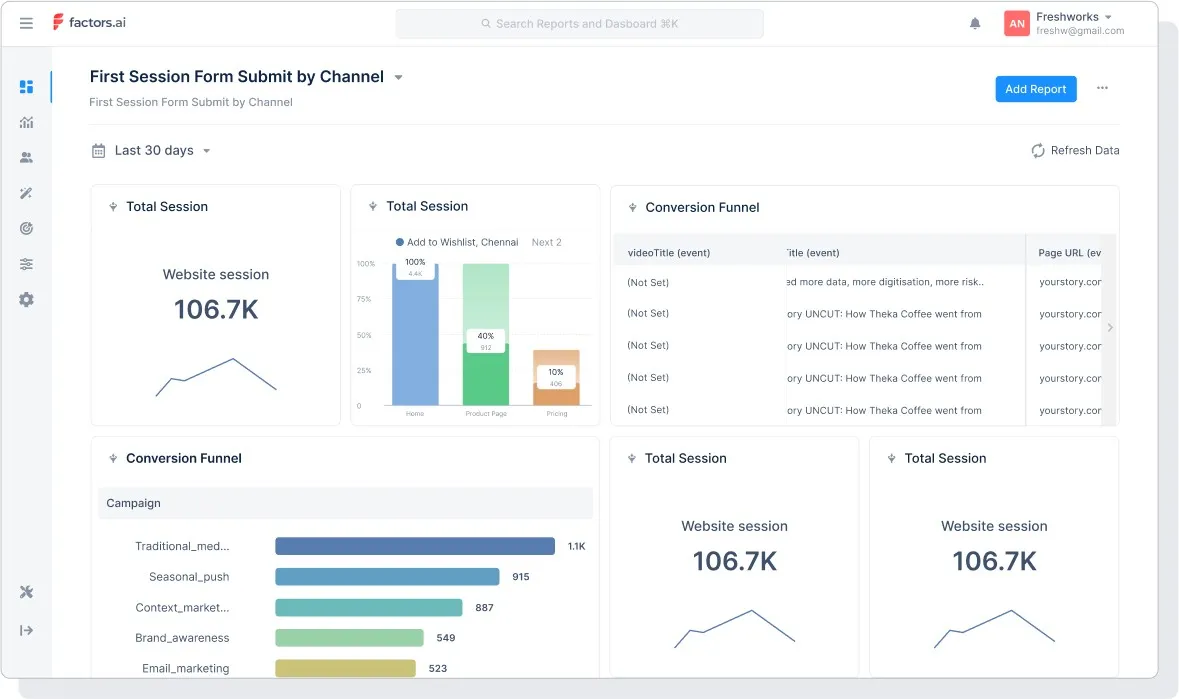
Factors is an account intelligence platform that helps B2B companies identify, prioritize, and engage their high-intent buyers. It provides actionable insights and personalized recommendations to optimize ABM strategies.
Best for: Account prioritization and engagement
Key features:
- Data enrichment: Enrich CRM accounts with rich firmographic and contact data and map account and user-level engagement directly in your CRM
- Intent signals: Factors can pull intent signals from LinkedIn and G2, giving greater visibility into high-intent accounts
- Scoring features: Assign a value to every interaction an ICP account has with your website
- Personalized content recommendations: Suggest relevant content for each account.
- Real-time alerts: Get real-time Slack or Teams alerts when target accounts are engaging with your website, G2, ads,
- Integration capabilities: Connect with CRM such as HubSpot, Salesforce, and other tools such as Slack, Microsoft Teams, Drift, Clearbit, etc.
Pros:
- Unique in capturing holistic intent signals across LinkedIn and G2 engagements
- More integrated communication channels like Slack and Microsoft Teams
- Helps streamline and focus ABM efforts
Cons:
- Scope to improve user interface
- Users have reported instances of data mismatch
- Factors doesn't offer deanonymization at a contact level
Pricing:
Paid plans start at $4788/year
11.Cognism

Cognism is primarily a sales intelligence platform with a high-quality contact database. It is a solid solution for phone numbers and is particularly useful for ABM strategies targeting international markets.
Best for: B2B sales intelligence and compliance
Key features:
- Global B2B database: Access to millions of verified business contacts globally
- Linkedin browser extension: Designed for sales reps' workflows such as sales prospecting
- Intent data: Identify accounts showing buying signals., access DNC list filtering, data enrichment, a premium phone-verified mobile number dataset, and verification service
- Target account list: Build target account lists based on key indicators of purchase, such as hiring, funding, and technographic
- Chrome extension: Access contact data while browsing LinkedIn or company websites
- Sales cadences: Create multi-channel outreach sequences using Cognism's contact data
- Compliance: Ensure GDPR and CCPA compliance in your outreach
- Ample Integrations: Integrates with Salesforce, Hubspot, Microsft Dynamics, Pipedrive, Outreach, Salesloft, Zapier, and more
Pros:
- Strong focus on data accuracy and compliance
- Useful for international ABM campaigns
- Integrates with a comprehensive suite of sales acceleration tools
Cons:
- Users report inaccuracies or outdated data
- Doesn't work so well for finding contact details for smaller organizations
- Platform comes with a steep learning curve
Pricing:
Custom pricing based on needs
12.Folloze

Folloze is a content personalization engine that helps scale ABM efforts. Curate highly personalized, content-rich experiences for target accounts to drive engagement throughout the buyer's journey.
Best for: Personalized ABM content experiences
Key features:
- Content personalization: Create tailored content experiences or ‘boards' for different segments and accounts
- Reports: Deep engagement and content reports- sort across identity, UTM source, campaign name, timeframe, and date range
- Create ABM landing pages: Design on-brand, compliant microsites, landing pages, and virtual events
- AI-powered content recommendations: Automatically suggest relevant content based on account characteristics and behavior
- Sales enablement: Empower sales teams with personalized content for their accounts
- Integration capabilities: Connect with CRM, marketing automation, and other ABM tools
Pros:
- Account-based marketing software to build personalized web experiences at scale
- Get granular-level campaign analytics
- Helps align sales and marketing through shared content experiences
- User-friendly interface for creating engaging microsites and content hubs
Cons:
- Scope for customization in the format options
- May require significant content creation efforts to fully leverage the platform
Pricing:
Custom pricing based on needs
How to Choose the Ideal Account-Based Marketing Software?
There's no one-size-fits-all "best" account-based marketing tool. The right choice depends on your unique business needs. As you weigh your options, keep these key factors in mind:
- Integration: Does it play nice with your current tech stack?
- Data Quality: Is the data reliable and actionable?
- Analytics: Can you easily measure your ABM success?
- Scalability: Will it grow with your business?
- Support: Is help available when you need it?
- Budget: Does the cost align with your expected ROI?
- User-Friendliness: Can your team adapt to it quickly?
Remember, the perfect Account-based marketing platform should fit your needs today and support your growth tomorrow. By considering these factors along with our reviewed top ABM platforms, you'll be well-equipped to make a choice that aligns with your needs and expected ROI.
Curious about how Storylane can help? Start a free trial today or book a demo to know more.

.svg)
.svg)







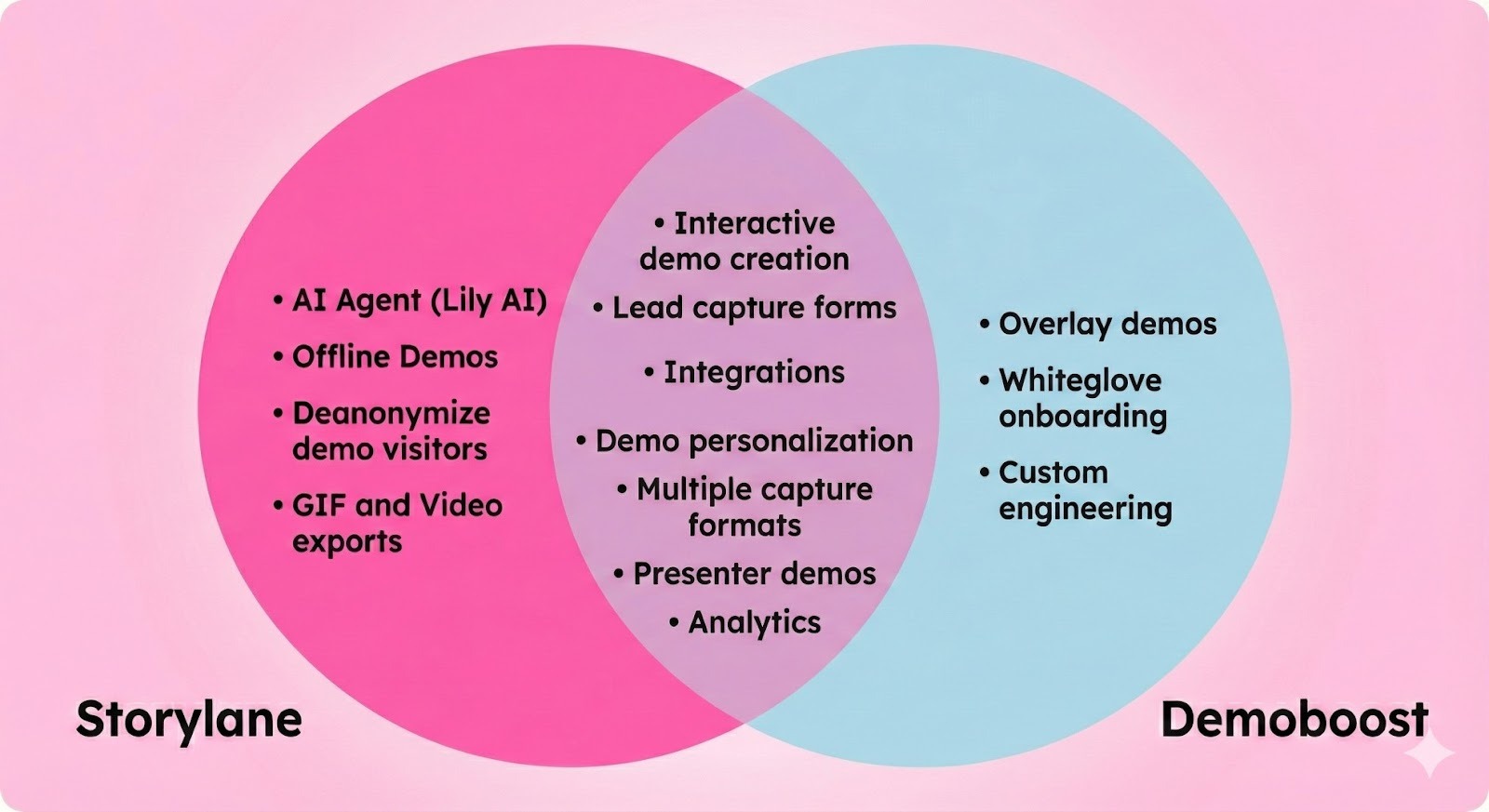

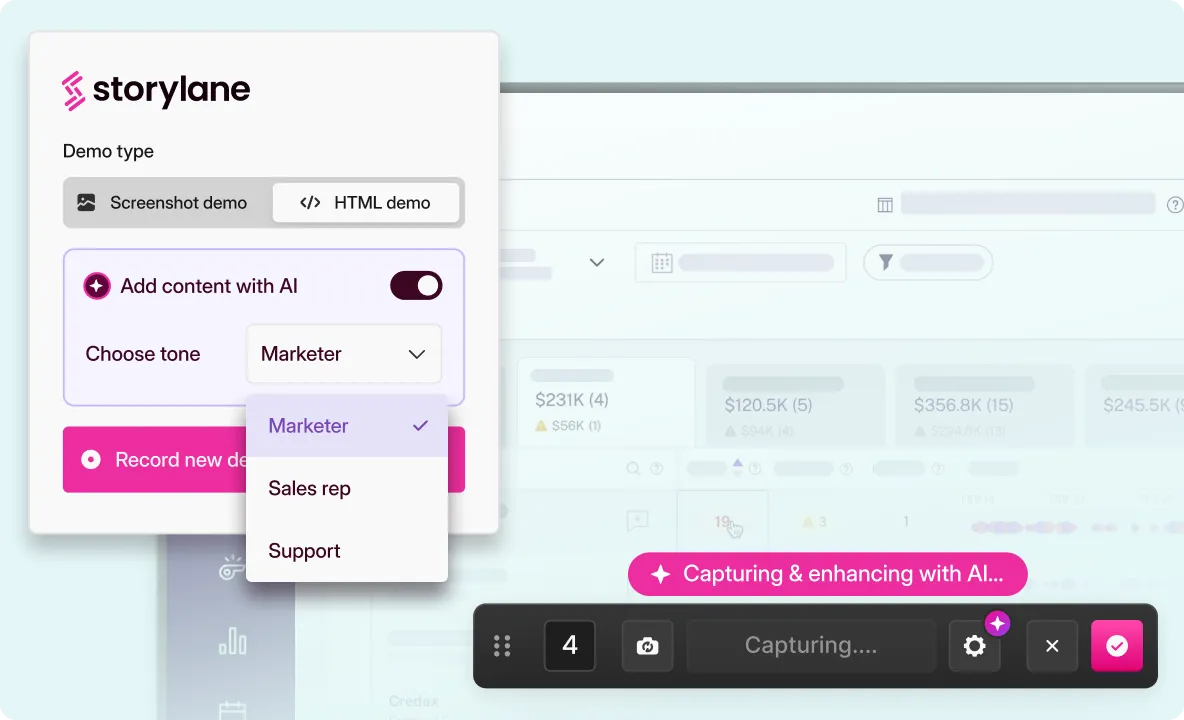
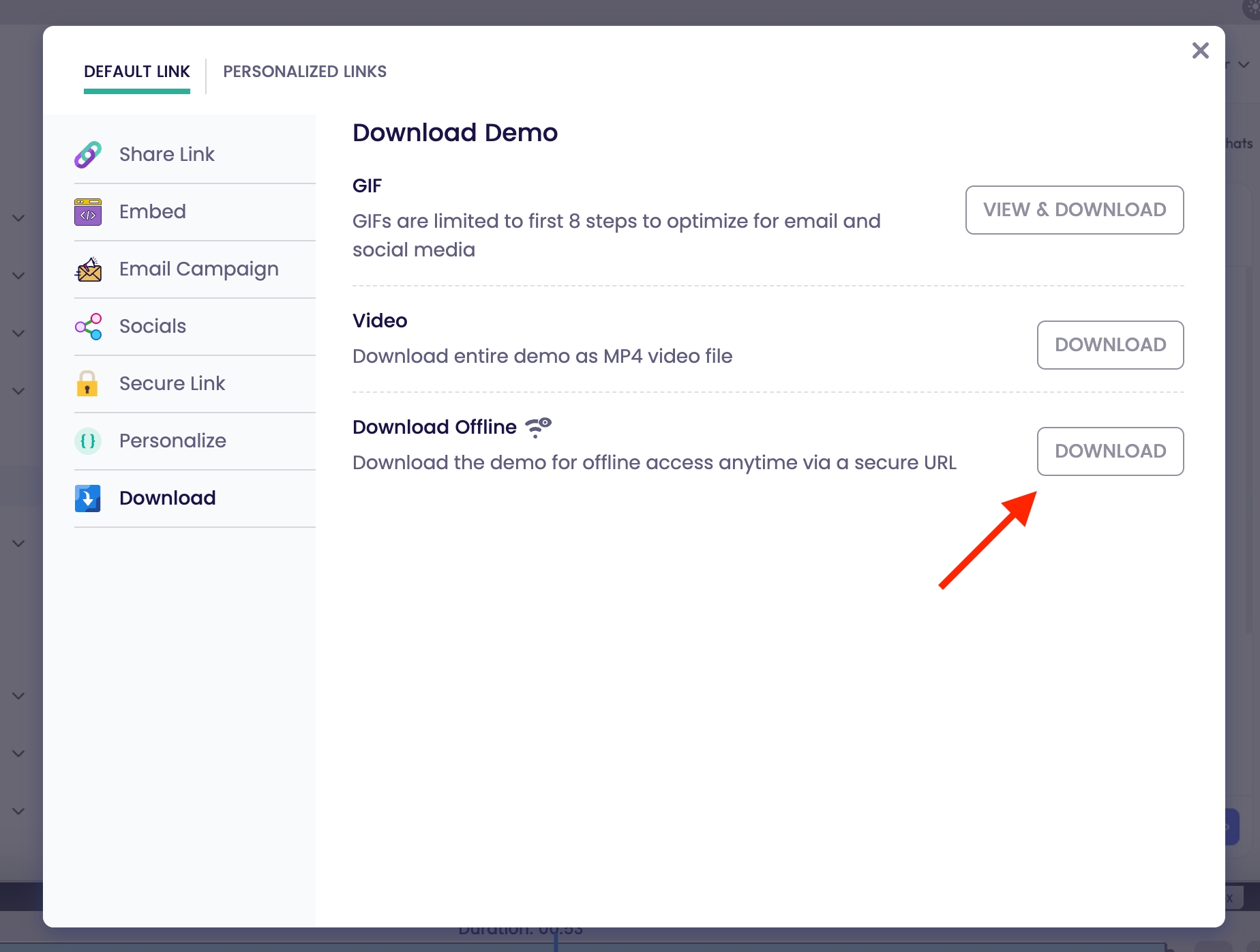
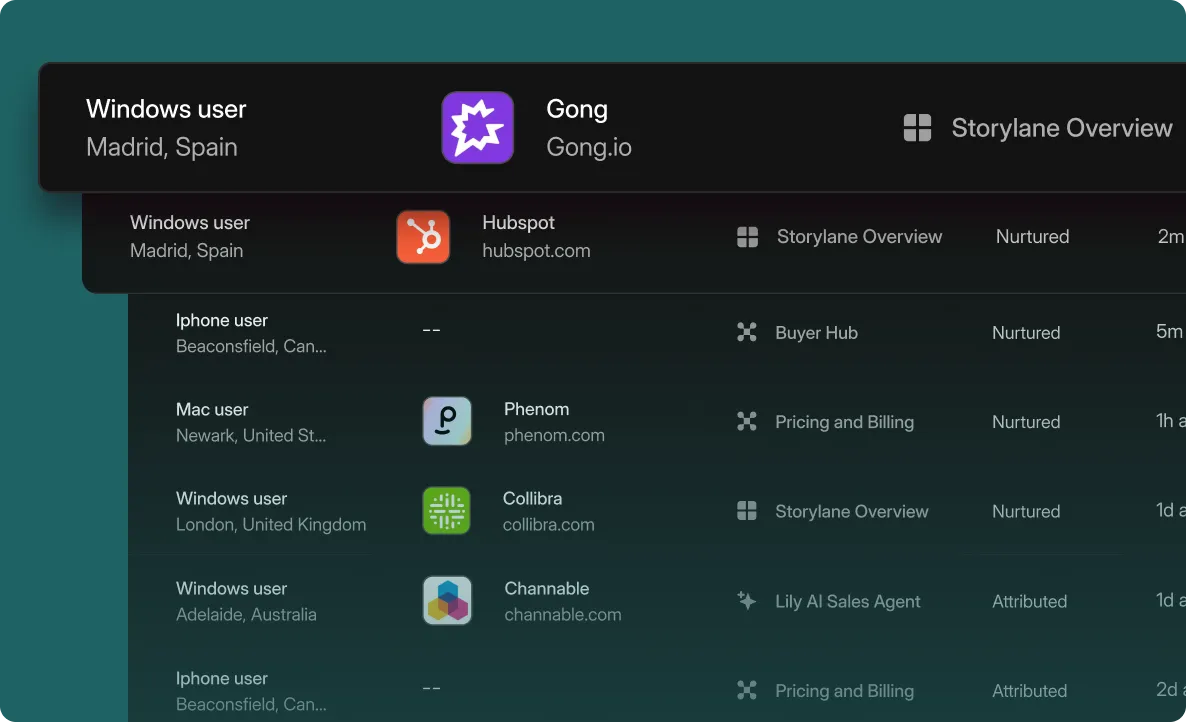
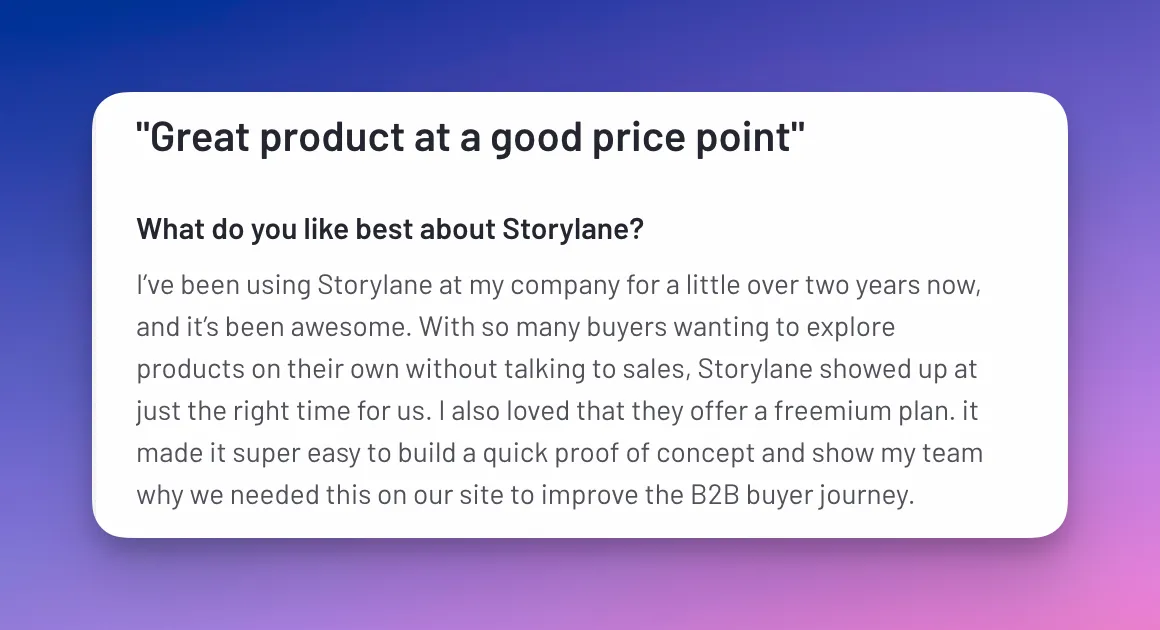
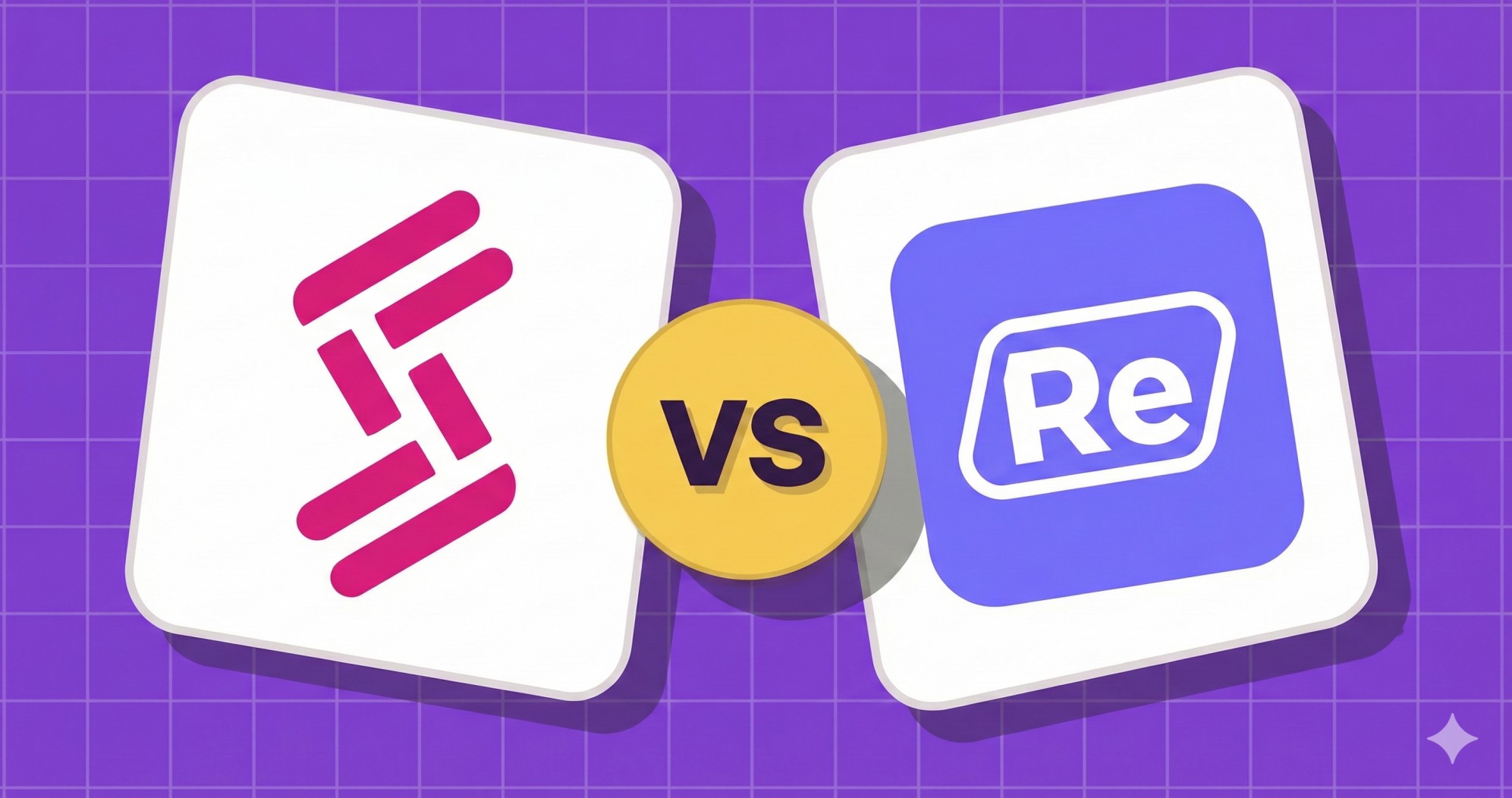
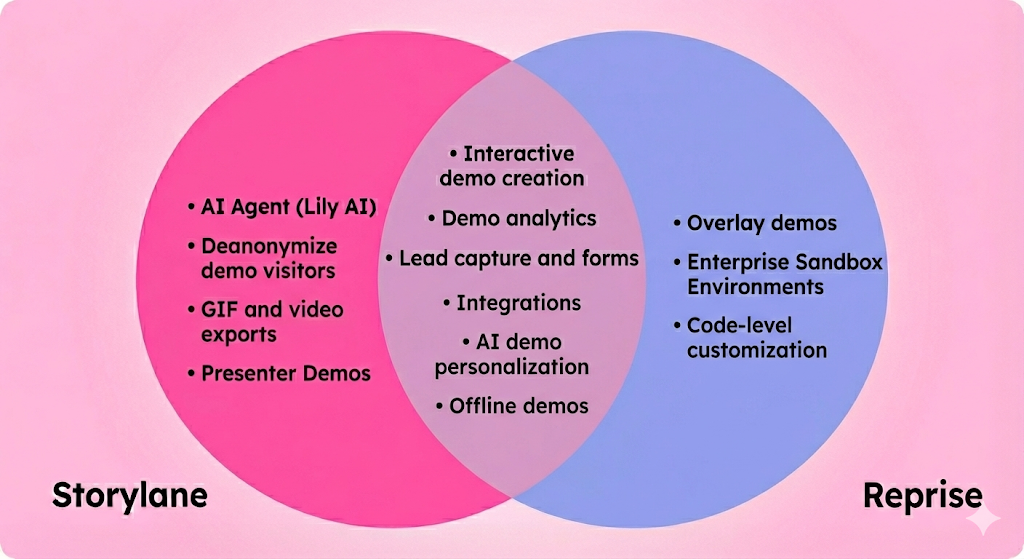
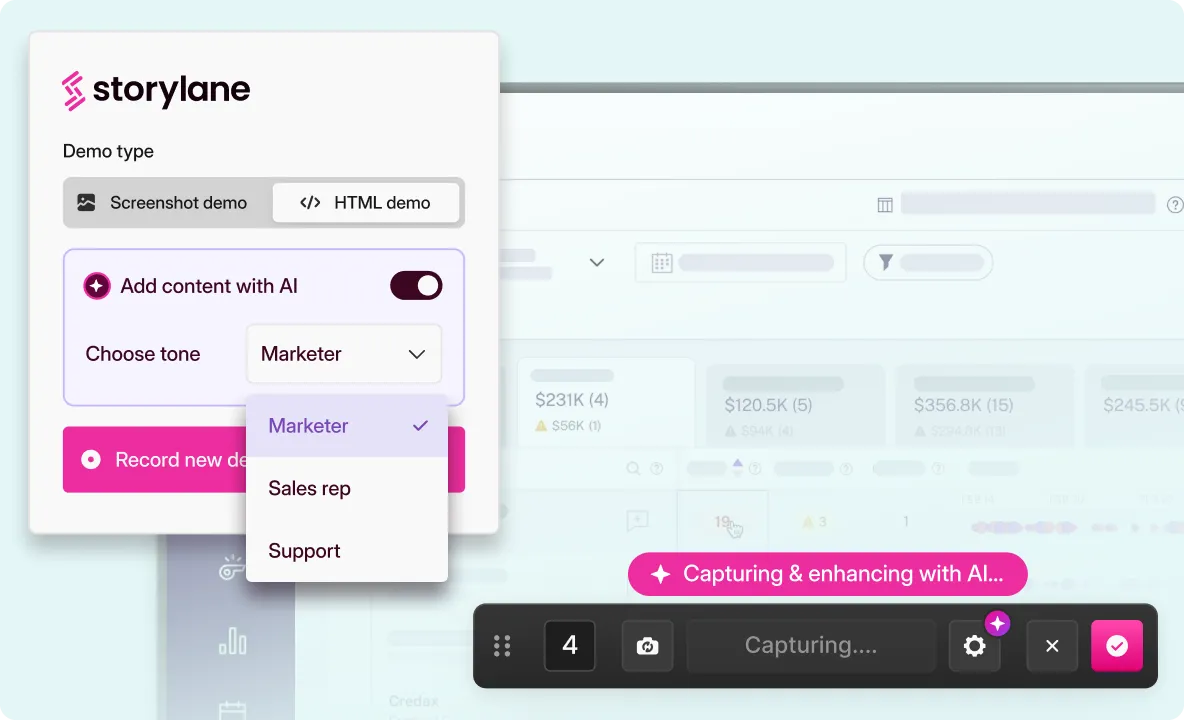
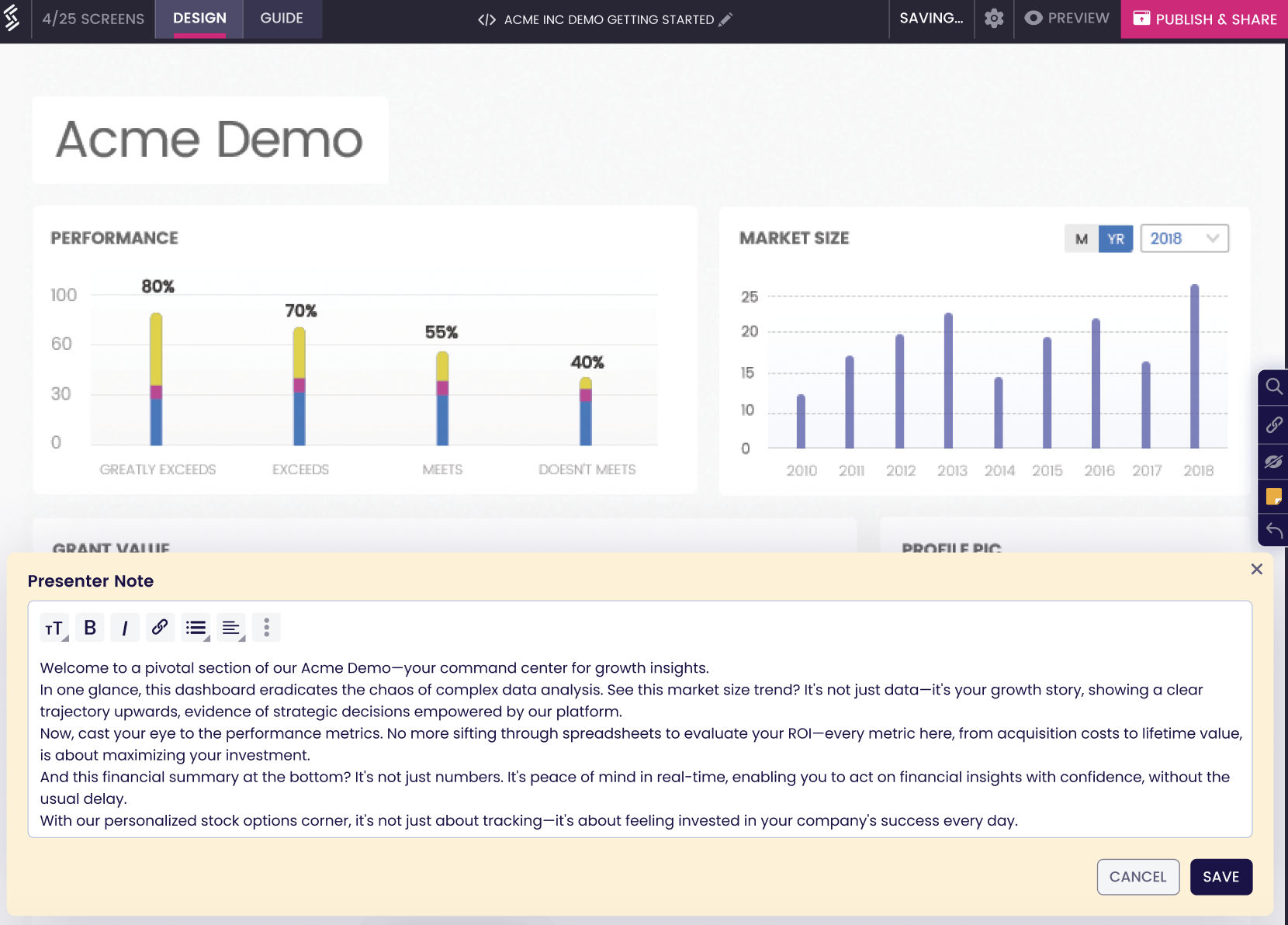
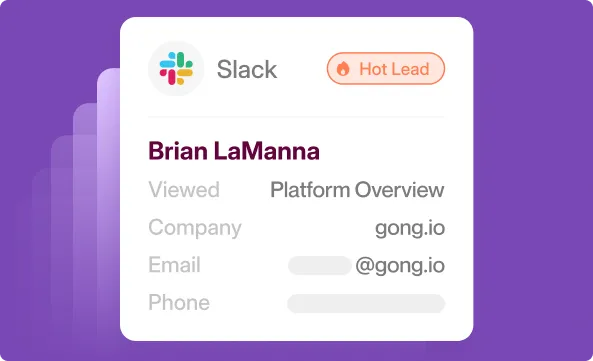
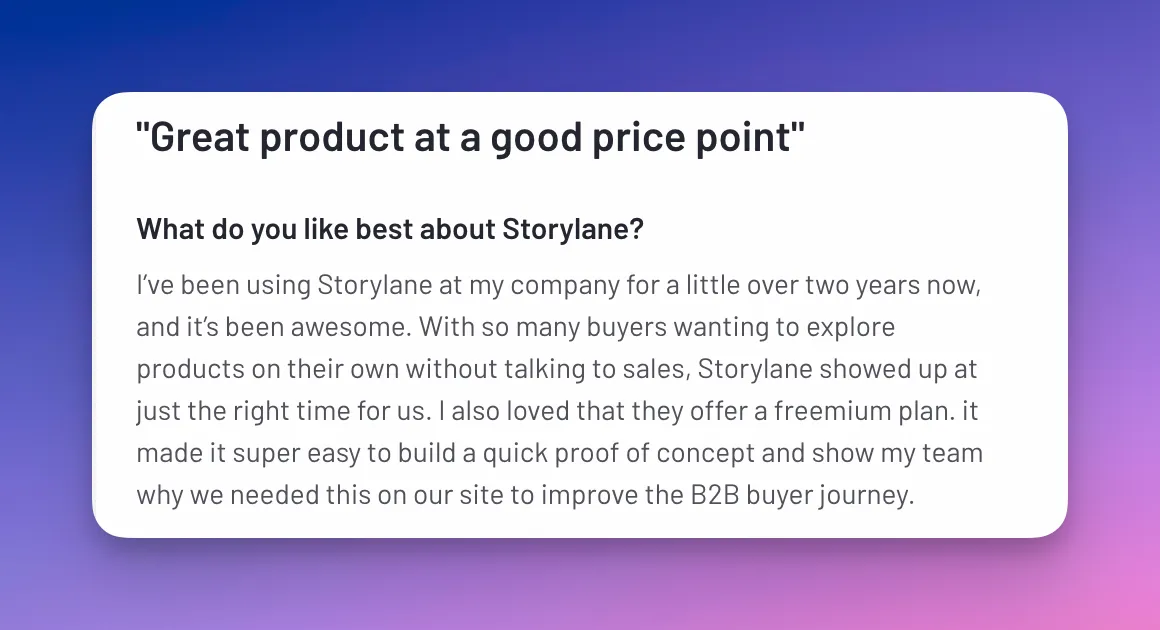
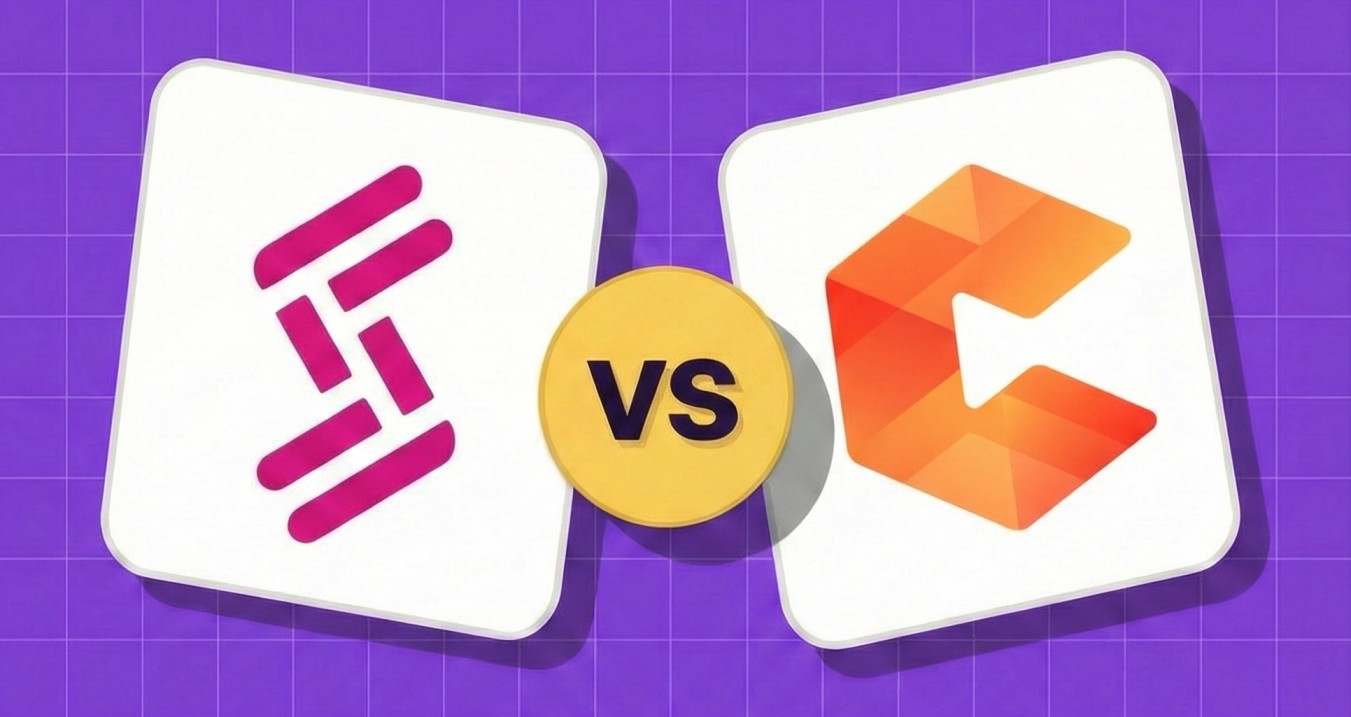
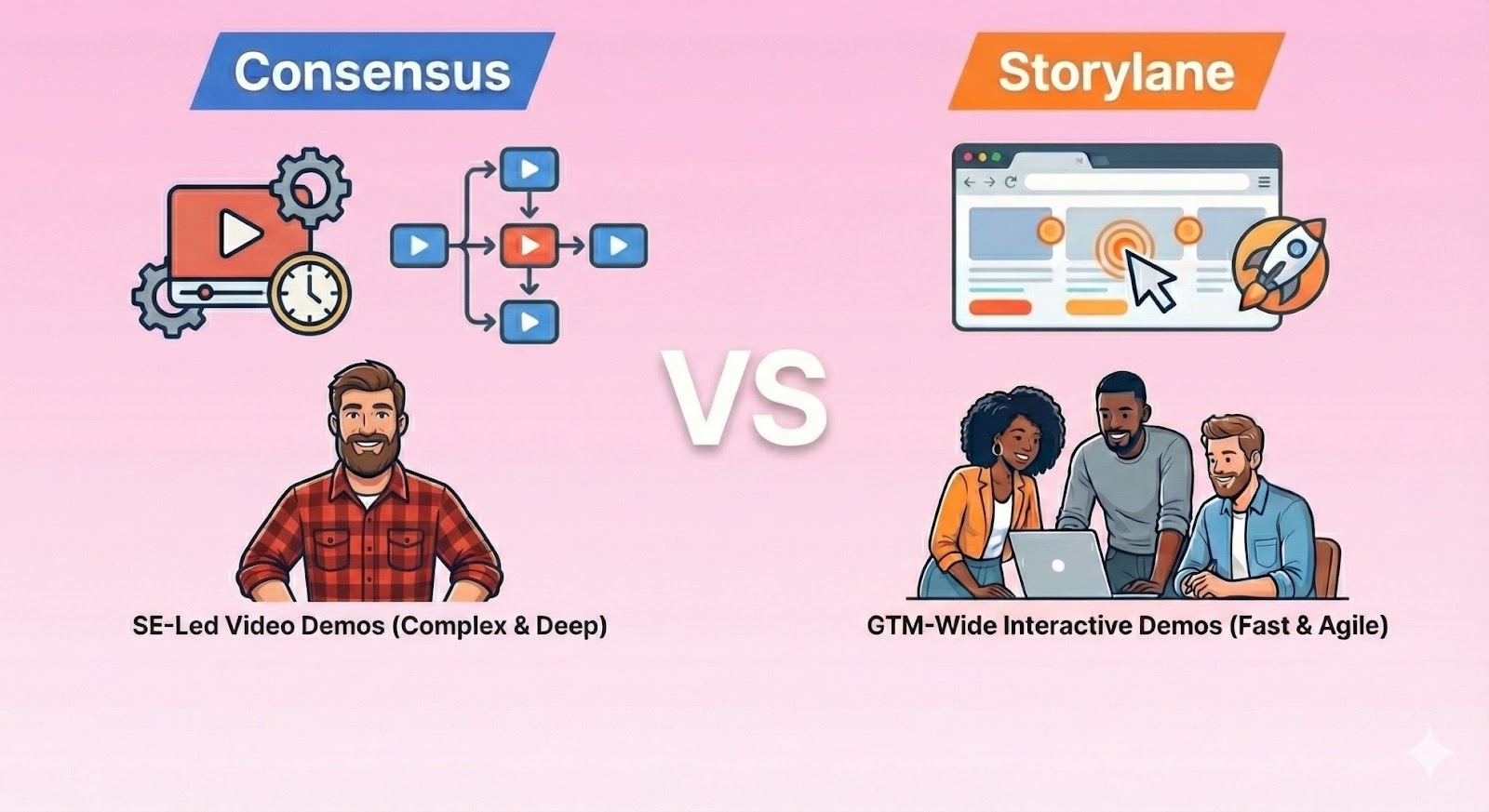
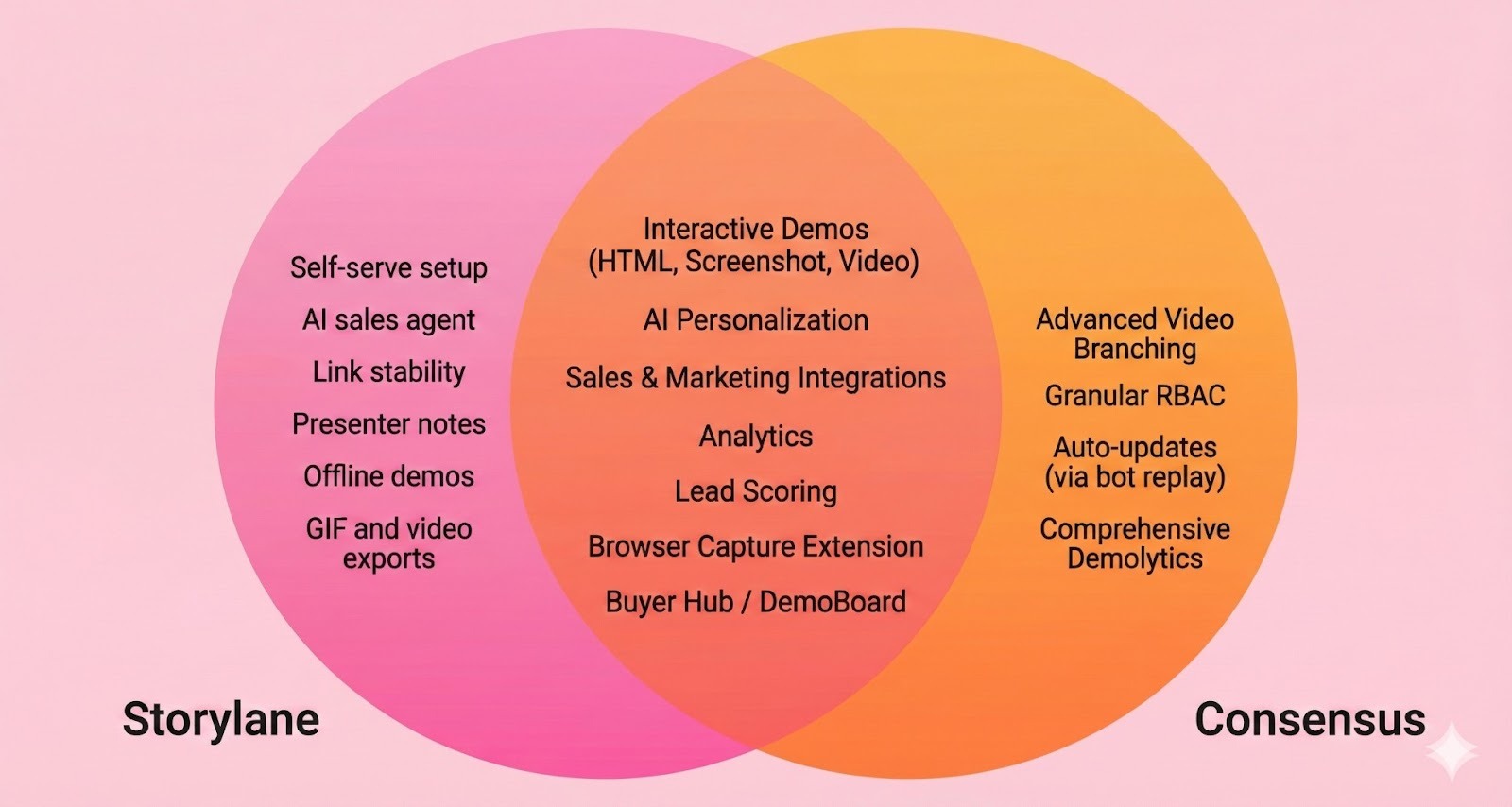

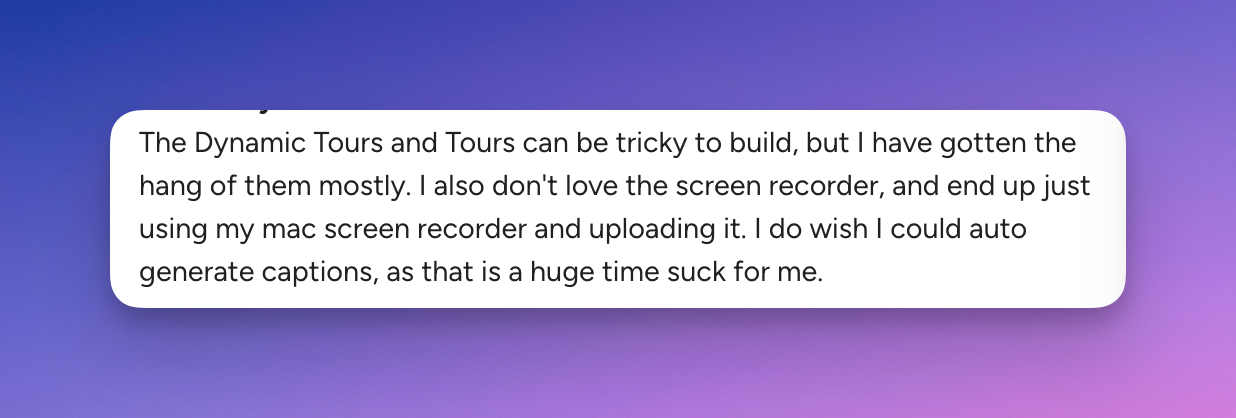
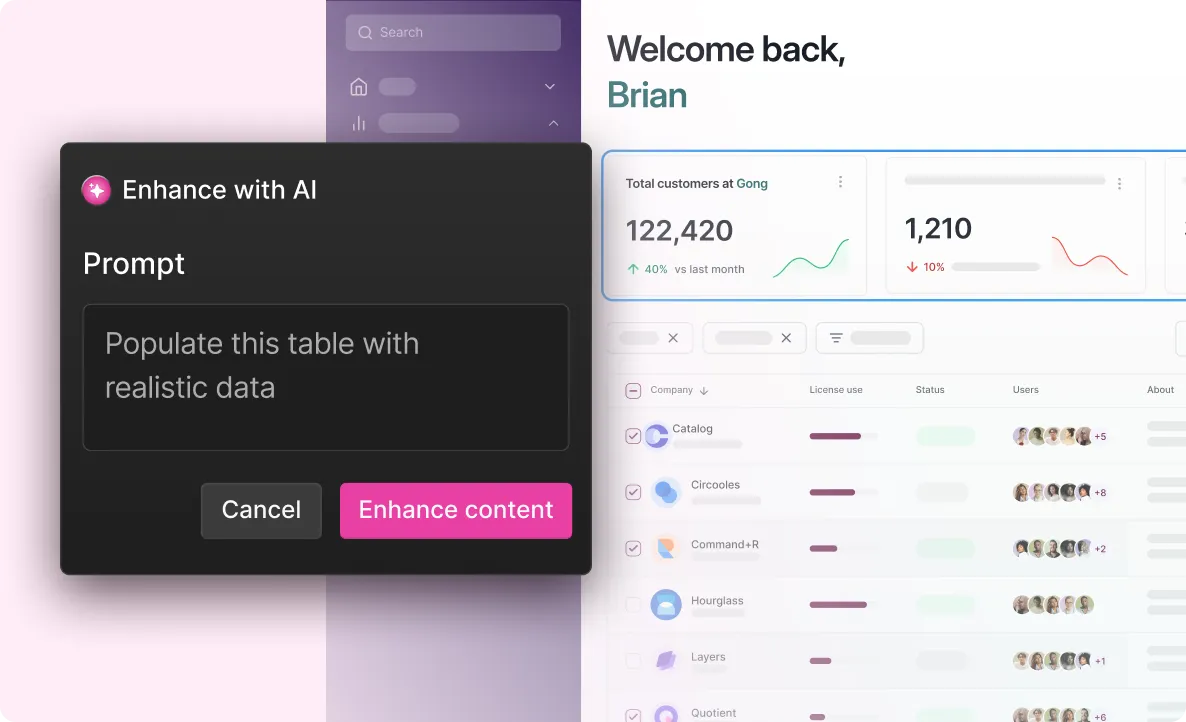

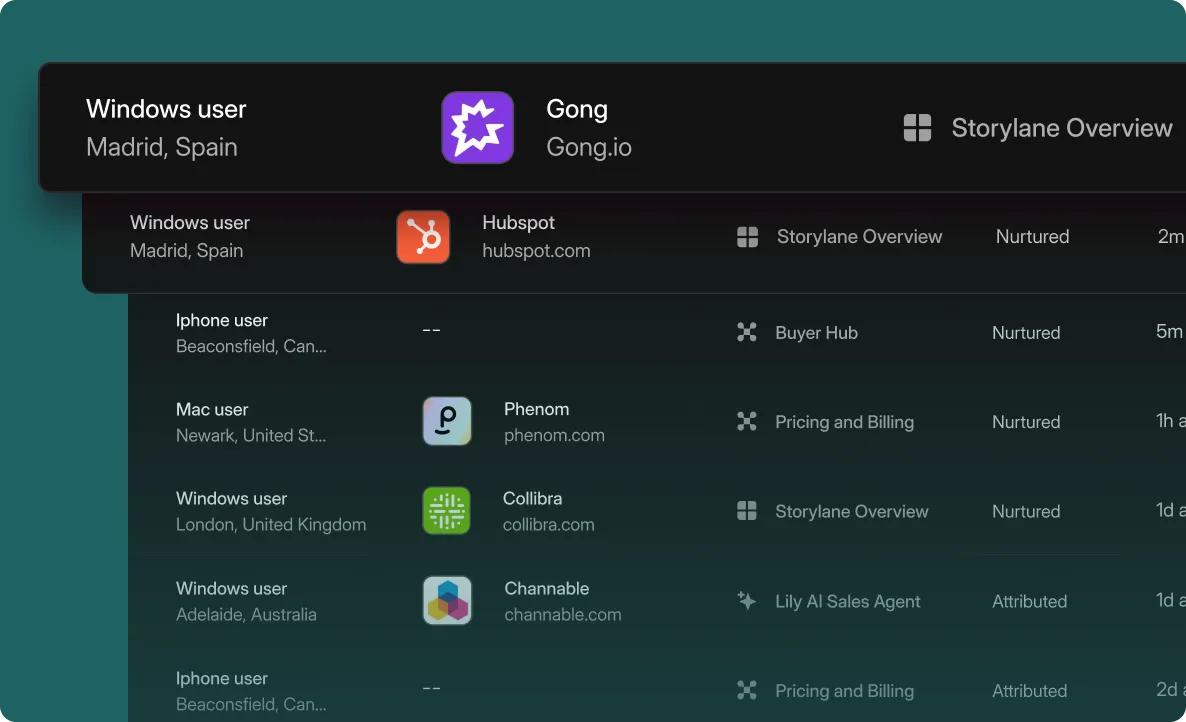
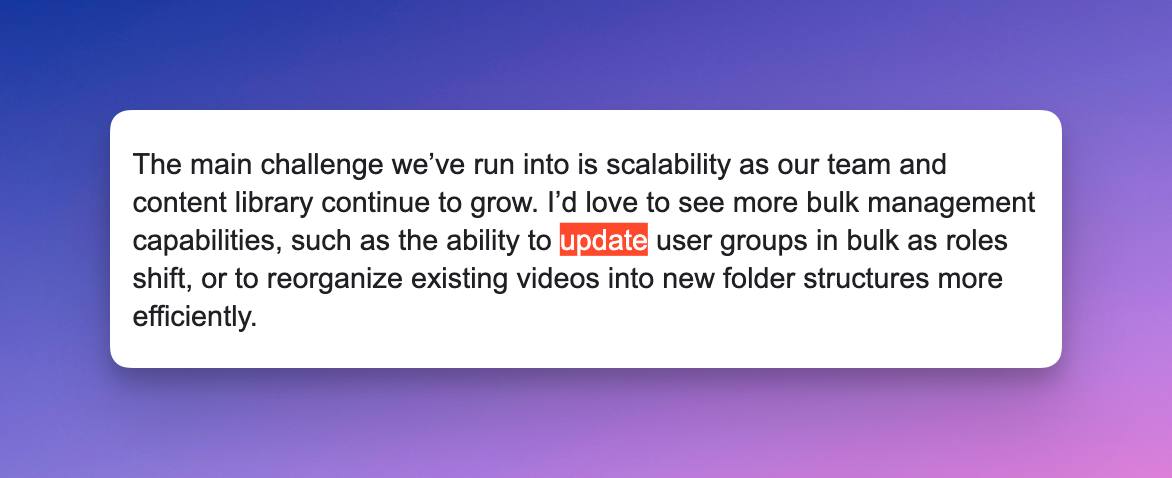

.svg)

.webp)